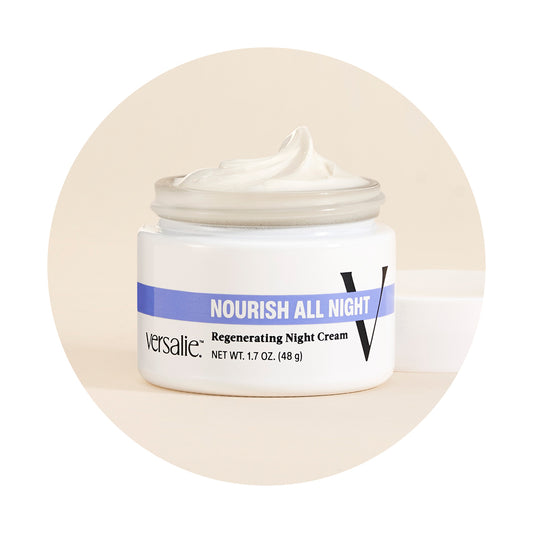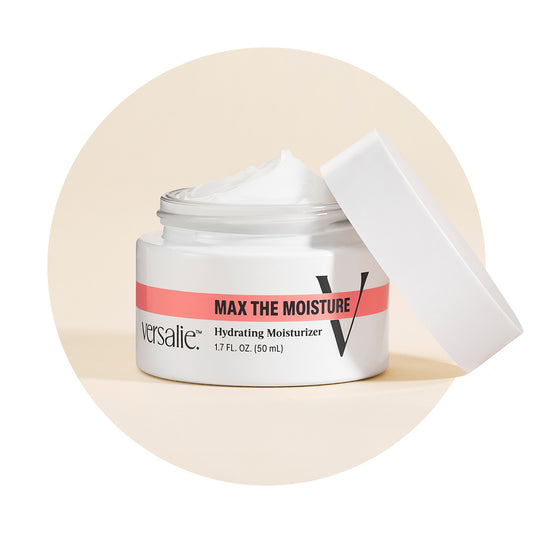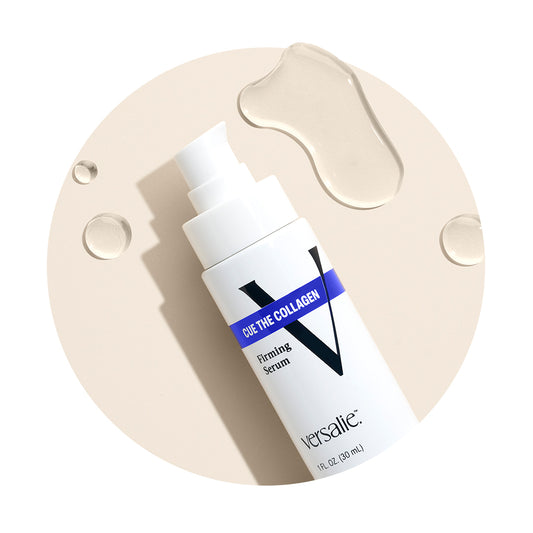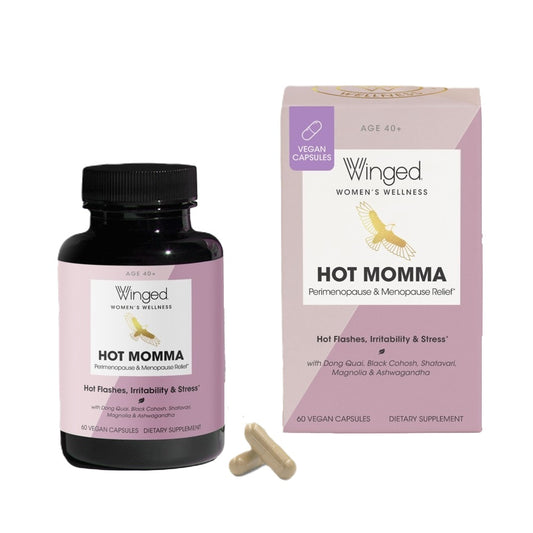Your menopause experience, along with whether you drink alcohol (and how much) is personal. So, without judgement and stigma, we want to talk about how alcohol may affect menopause symptoms and how it might be affecting your body now that you’re over 40.
People drink alcohol for a whole host of reasons — to celebrate, to relax, to socialize with friends, to cope with stress, the list goes on. And at least half of us are doing it — 50% of the women over the age of 50 drink at least a moderate amount of alcohol (1 drink or less per day).
What’s considered a healthy amount of drinking?
Across the world, the amount that’s considered moderate or healthy varies. For our discussion, we’re going to use the definition put forward by many national organizations, including The National Institute on Alcohol Abuse and Alcoholism and the Centers for Disease Control and Prevention (CDC). They both define moderate drinking for females as 1 drink or less per day. Depending on what you’re drinking, what’s considered 1 drink varies.

Drinking a moderate (and the key is moderate!) amount of alcohol may provide some benefits which include:
- Lower risk of type 2 diabetes and stroke.
- Lower risk of dementia (especially for wine drinkers).
- Lower risk of becoming obese.
What is alcohol dependence?
While there may be some benefits to drinking alcohol, we also want to acknowledge that alcohol dependency can be a problem for many people and their families. Alcohol dependence is included under the umbrella term of alcohol use disorder (AUD). AUD is characterized by a weakened ability to stop or control the use of alcohol, even when it's causing problems in someone's life.
It’s thought that the brain’s reward and stress systems are dysregulated in someone dependent on alcohol. The brain gets used to the regular presence of alcohol. They need to drink larger amounts of alcohol to have the brain feel that same sense of reward. This can lead to additional drinking. It's also why quitting can be so hard, and relapse is common.
If you want to drink less or find that drinking alcohol is affecting your day-to-day life, your relationships, or your productivity, there is help available. The Substance Abuse and Mental Health Services Administration’s (SAMHSA) National Helpline (1-800-662-HELP (4357)) is a 24-hour free and confidential resource for information and referrals, available in English and Spanish. You should also talk to your doctor if you have questions or concerns.
Alcohol dependency can have negative effects on our health including our sleep, mental health, and even our libido. In addition to dependence, alcohol consumption has been linked with the following:
- Increases the risk of cardiovascular disease.
- Can have harmful interactions with many medications. Talk to your doctor or pharmacist about the medications you take and whether they may negatively interact with alcohol.
- Heavy drinking can lead to osteoporosis.
- Can make depression worse.
- More susceptible to key organ damage.
A small increase in the risk for breast cancer and other cancers. While there’s an association between alcohol consumption and breast cancer (those who drink have higher rates of breast cancer), it’s not clear whether alcohol’s effect on estrogen has anything to do with that association.

What’s the connection between alcohol and menopause?
Alcohol does have effects on our bodies that can worsen some of the menopausal symptoms you may already be experiencing.
Sleep
Many people going through menopause have trouble getting enough quality sleep. Drinking alcohol can make it even harder to get a good night's rest. While a drink before bed might help you relax, it can disrupt your sleep later. And as you probably know, when you don’t get enough quality sleep, it's harder to handle stress, emotions, and even make decisions during the day.
Digestive health
In larger amounts, alcohol can inflame your intestines and disturb your gut microbiome. Your gut microbiome are the bacteria living in your digestive tract that play a role in the body’s metabolism, nutrition, physiology, and immune function. While probiotic foods like sauerkraut, yogurt, and kimchi help support the helpful bacteria, large amounts of alcohol can greatly reduce the number of helpful microbes in your digestive tract. This can be a particularly difficult problem if you’re experiencing digestive symptoms like menopause bloating, heartburn, diarrhea, constipation, or an upset stomach.
Mood changes, depression, and anxiety
Some people drink to manage stress or deal with a negative mood. The reason this may be more problematic during menopause is because there’s an increased prevalence of depression and anxiety during menopause. If they don't have healthy ways to handle these feelings, they may turn to alcohol. But alcohol is a depressant and drinking too much can often cause feelings of sadness (depression) and nervousness (anxiety).
Osteoporosis
Heavier alcohol consumption before the age of 35 can dramatically affect bone health and may increase the risk of developing osteoporosis later in life. The age of 35 is when we reach our peak bone mass, and it goes down from there. Alcohol affects bone-forming cells. While you may be over 35, there are things you can do to help slow down bone loss. Older women who are heavier drinkers do have greater bone loss than those that have minimal use of alcohol.
Hot flashes and night sweats
Research suggests that regularly drinking alcohol is strongly connected with an increased risk of hot flashes and night sweats. You may find that you experience more hot flashes, and they may be more noticeable.
What else can affect how the body processes alcohol?
The change in how alcohol affects us at 40+ seems to have more to do with age than with menopause.
There are physical factors related to age and sex that can affect how the body processes alcohol:
- Liver enzymes that help metabolize alcohol become less efficient with age.
- Our central nervous system sensitivity increases with age.
- Most females have a lower amount of lean muscle mass. This can make them more susceptible to the effects of alcohol.
- How alcohol affects each person will vary. But in general, the more you consume the more likely you are to experience negative side effects.

How can I start to drink less?
If you want to drink less often or reduce the amount you drink, here are some ideas you can start to implement today:
- Plan ahead. Set limits on the number of days you plan to drink and how many drinks you’ll have.
- Understand and manage your triggers. If you’re more likely to drink (or drink more) when you’re with certain people or at a certain place, change things up. Instead of happy hour, invite a friend to go for a walk after work.
- Find support. Tell trustworthy people in your life about your goals to drink less. They can support you and help hold you accountable if you need that.








